CPJ condemns Equatorial Guinea’s decision to ban state media coverage of Gbagbo trial
New York, February 2, 2016–The Committee to Protect Journalists strongly condemns the decision of the government in Equatorial Guinea to ban state television from covering the trial of former Ivory Coast leader Laurent Gbagbo, which opened at the International Criminal Court (ICC) in The Hague on January 28. “We’ve been forbidden from airing Laurent Gbagbo’s…
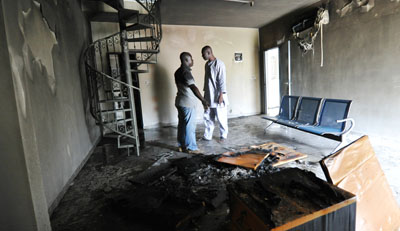
Local press targeted and harassed in Ivory Coast
Lagos, Nigeria, August 24, 2012–Ivorian authorities must immediately halt censorship of news outlets reporting critically on the government and investigate an armed assault on the offices of a publishing group, the Committee to Protect Journalists said today.
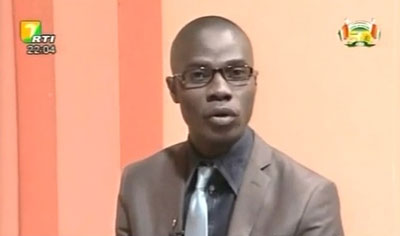
CPJ welcomes Ivory Coast’s release of Hermann Aboa
New York, January 5, 2012–The Committee to Protect Journalists welcomes Friday’s decision by a judge in Abidjan to release on bail former Ivorian state television presenter Hermann Aboa and calls on prosecutors to drop the politicized charges against him.
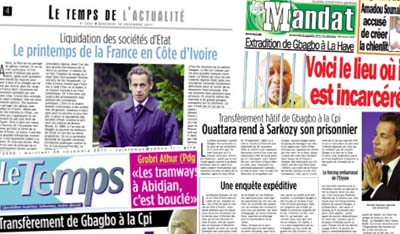
Three newspapers suspended in Ivory Coast
New York, December 14, 2011–The government of Ivory Coast should immediately lift its suspensions on the circulations of three newspapers that published critical commentaries on the country’s five-month post-election conflict and its aftermath, the Committee to Protect Journalists said today.
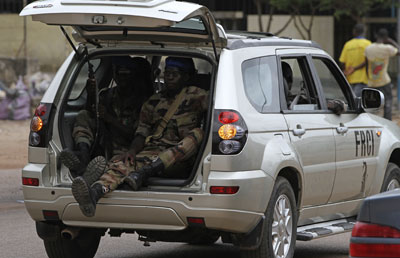
Justice pins Gbagbo, but not yet Ouattara’s forces
This week, former Ivory Coast ruler Laurent Gbagbo was extradited to the Hague to account for alleged human rights violations before the International Criminal Court. Justice appears to be slower in coming to rival fighters loyal to current President Alassane Ouattara. According to CPJ research, Ouattara’s forces have been involved in the deaths of two…
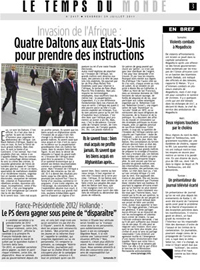
Ivory Coast censors paper for column on Obama meeting
New York, August 4, 2011–The government of Ivory Coast President Alassane Ouattara, who pledged to uphold democracy in a Friday meeting with U.S. President Barack Obama, has suspended a newspaper over a reprinted opinion column criticizing the White House meeting, the Committee to Protect Journalists said today.

The struggle continues for power, and media, in Ivory Coast
In Ivory Coast, the tense post-election dispute between incumbent President Laurent Gbagbo and rival and self-proclaimed president-elect Alassane Ouattara is a power struggle for control of national institutions–including the sole state media outlet, Radiodiffusion Télévision Ivoirienne (RTI).